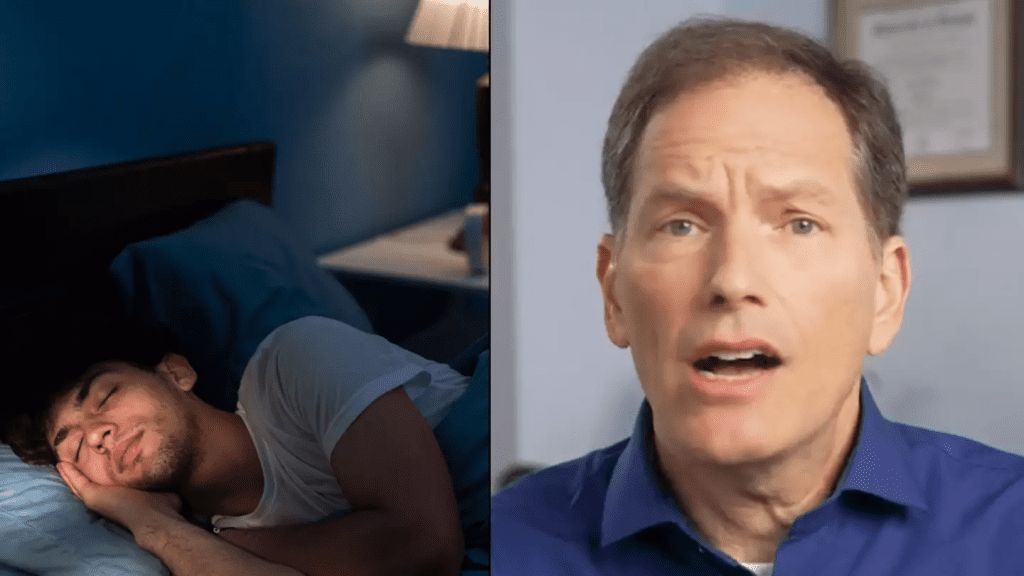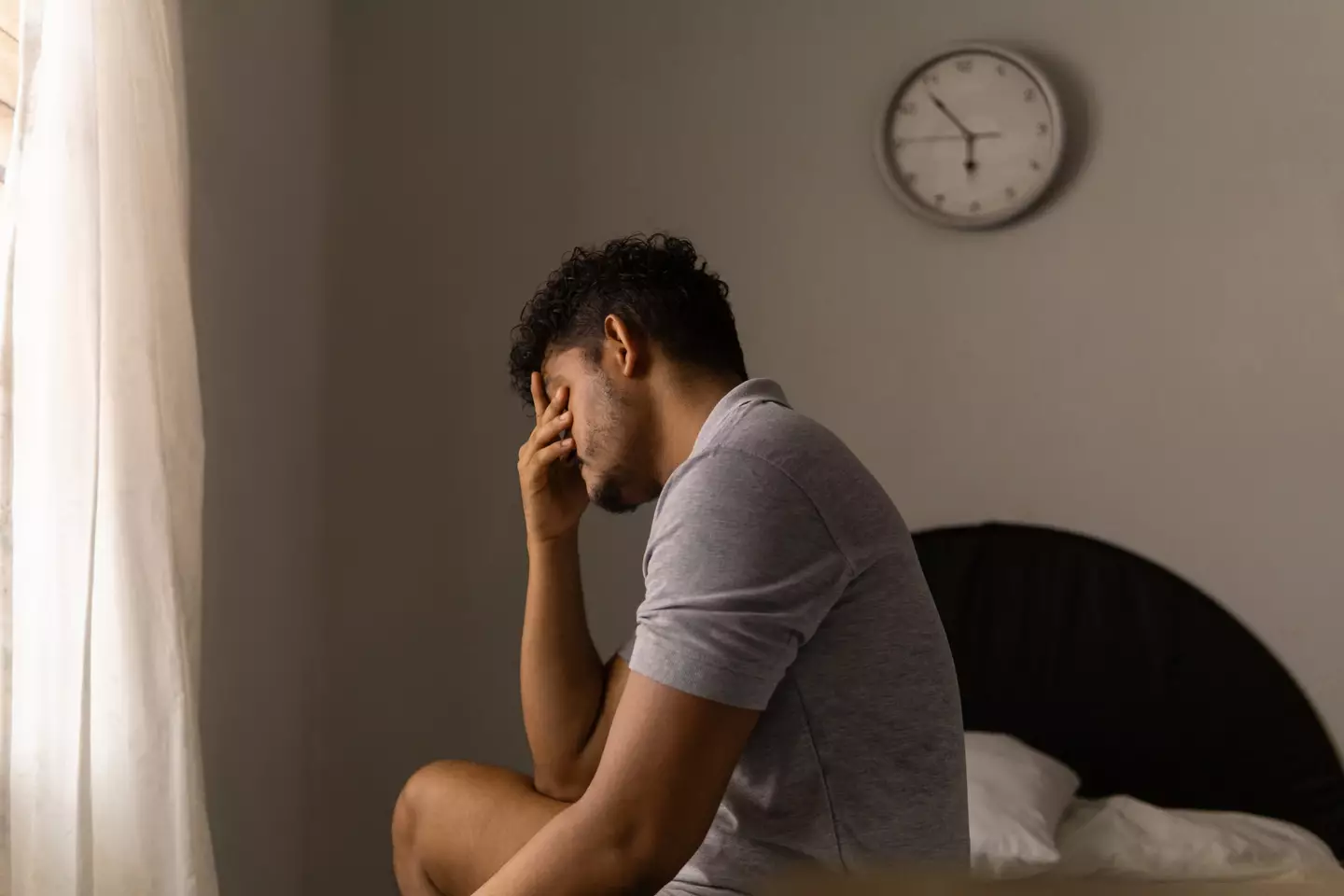Falling asleep isn’t always as easy as closing your eyes and drifting off. While some people seem to nod off effortlessly, others can toss and turn for hours before finally catching some Z’s. So, how long should it really take you to fall asleep? According to Dr. Michael Breus, a renowned sleep expert known as “The Sleep Doctor,” the process of falling asleep should follow a specific timeframe—one that could reveal a lot about your overall sleep health. In this article, we’ll explore what Dr. Breus and other sleep experts have to say about how long it should take to fall asleep and what it might mean if you’re falling asleep too quickly or taking far too long.
What Is the Ideal Time to Fall Asleep?

According to Dr. Breus, it should ideally take between 10 to 15 minutes to fall asleep. This window is considered the sweet spot for most people, based on findings from sleep labs and field studies.
- The 10-15 Minute Rule: Falling asleep within this range typically means that your body is ready for rest, your mind has settled, and you have a healthy sleep routine. If it takes longer, you may be dealing with anxiety, stress, or other underlying issues that need attention.
- Too Quick to Sleep? On the flip side, falling asleep in less than 5 minutes could signal sleep deprivation. Dr. Breus notes, “If you are finding yourself falling asleep in two to three minutes, you probably need to get more sleep.”
Factors That Influence How Quickly You Fall Asleep
Falling asleep isn’t just about lying down and closing your eyes. A variety of factors, both physical and mental, can affect the time it takes you to drift off.
- Physical Exhaustion: If you’ve had an unusually busy or strenuous day, chances are you’ll fall asleep more quickly. Your body demands rest to recover from the increased physical strain, making it easier to enter the first stages of sleep.
- Mental Fatigue: Similarly, a mentally exhausting day can contribute to faster sleep onset. The brain is tired, and the need for rest becomes more apparent, especially if you’ve been working on complex tasks or dealing with emotional stress.
- Medical Conditions: Conditions like insomnia or restless leg syndrome can make it harder to fall asleep, often extending the time well beyond the 10-15 minute range. If you find yourself consistently taking more than 30 minutes to nod off, it could be a sign of an underlying sleep disorder.
Sleep Deprivation: Falling Asleep Too Quickly
@thesleepdoctor Military Sleep Training is NOT what you think! 😱 #FallAsleep #SleepFast #MilitarySleepMethod #HowSleepWorks #FallAsleep ♬ original sound – Sleep Doctor
While most people assume that falling asleep instantly is a good thing, Dr. Breus warns that it can be a red flag for sleep deprivation.
- What Is Sleep Deprivation? When the body doesn’t get enough rest consistently, it builds up what’s called “sleep debt.” This leads to increased drowsiness during the day and an urgency to fall asleep as soon as you hit the pillow at night.
- The Signs: Falling asleep in less than 5 minutes can indicate that you’re not getting sufficient quality sleep over time. This can affect your focus, mood, and overall health, increasing the risk of conditions like high blood pressure, diabetes, and obesity.
- How to Fix It: If you suspect you’re sleep-deprived, try adjusting your sleep schedule to allow for more rest. Aim for 7-9 hours of quality sleep each night, and consider using relaxation techniques like deep breathing or meditation before bed.
Why Some People Take Longer to Fall Asleep
While some people fall asleep as soon as their head hits the pillow, others take considerably longer. Dr. Breus explains that several factors contribute to delayed sleep onset.
- Anxiety and Overthinking: Racing thoughts and anxiety are common culprits. When your mind is overactive, it can be challenging to relax enough to fall asleep. This can lead to a vicious cycle, where anxiety about not being able to sleep keeps you awake even longer.
- Irregular Sleep Schedule: Inconsistent sleep patterns, like going to bed at different times each night, can confuse your body’s internal clock, making it harder to fall asleep quickly.
- Lifestyle Factors: Late-night caffeine intake, screen time before bed, and heavy meals close to bedtime can all interfere with the natural sleep process, prolonging the time it takes to drift off.

The Impact of Age on Sleep Patterns
Dr. Breus points out that age plays a significant role in sleep patterns, particularly during the transition from adolescence to adulthood.
- Changes in Your Twenties: According to Dr. Breus, the biggest sleep-related change during your twenties is a reduced tolerance for late nights. While social schedules often demand staying up late, the body’s ability to recover from sleep loss diminishes as we age.
- Why It Matters: The onset of puberty brings a shift in sleep-wake cycles, known as “delayed sleep phase syndrome,” which can last until the mid-twenties. During this period, young adults often struggle to balance their need for sleep with social obligations, leading to poor sleep hygiene and increased sleep debt.
Tips to Improve Sleep Onset and Sleep Quality
If you’re struggling to fall asleep within the ideal 10-15 minute window, there are several strategies you can try to improve your sleep onset and overall sleep quality.
.jpg)
- Establish a Consistent Sleep Schedule: Go to bed and wake up at the same time every day, even on weekends. This helps regulate your body’s internal clock, making it easier to fall asleep quickly.
- Create a Relaxing Bedtime Routine: Engage in calming activities before bed, such as reading, meditating, or taking a warm bath. Avoid stimulating activities like checking social media or watching intense TV shows right before sleep.
- Adjust Your Sleep Environment: Make your bedroom conducive to sleep by keeping it cool, dark, and quiet. Consider blackout curtains, white noise machines, and comfortable bedding to create an optimal sleep environment.
- Limit Stimulants Before Bed: Avoid caffeine, nicotine, and alcohol in the hours leading up to bedtime, as these substances can interfere with your ability to fall asleep.
- Try Relaxation Techniques: Deep breathing exercises, progressive muscle relaxation, or guided meditation can help calm the mind and prepare your body for sleep.
Conclusion: Finding Your Ideal Sleep Onset Time
The time it takes to fall asleep can tell you a lot about your overall sleep health. Ideally, falling asleep should take between 10 to 15 minutes. Falling asleep too quickly could signal sleep deprivation, while taking longer could be a sign of anxiety, lifestyle factors, or sleep disorders. By understanding the factors that affect sleep onset and implementing simple strategies to improve it, you can work toward better, more restful nights. Remember, a good night’s sleep is not just about quantity, but also quality—so prioritize your rest and give your body the time it needs to recharge.


